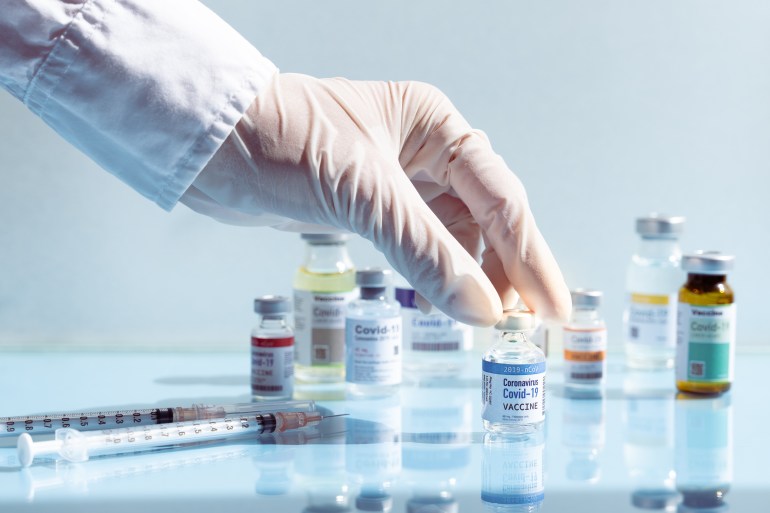When the World Health Organization announced last November 26 that Omicron, the new mutated from the Corona virus, was a worrying strain, vaccine manufacturers did not waste time, according to a report published by the American “Time” magazine.
And soon, Moderna announced that it was working on developing a vaccine for Omicron, while continuing to study a higher dose than its currently approved Corona vaccine, and a compound vaccine that protects against one of the variants of “SARS-CoV-2” (SARS-CoV-2). ) previous.
The companies soon announced that they were developing Omicron vaccines (Shutterstock)
And the company "BioNTech" - which developed its vaccine with the giant pharmaceutical company "Pfizer" - has also begun to study if its current two-dose vaccine provides protection against the new mutant Omicron, and a company spokesperson stated that the results of the study may be available in within two weeks.
Meanwhile, Pfizer-BioNTech is also working on a vaccine against Omicron that could take 6 weeks to develop and a few more months to test, meaning a vaccine could be available next spring.
Whether or not a special vaccine against Omicron will be necessary depends on the results of ongoing studies (Shutterstock)
Technology is adaptable
Moderna and Biontech-Pfizer developed their own anti-coronavirus vaccines using mRNA technology, which allowed them to move quickly after obtaining the correct genetic sequence of the SARS-CoV-2 virus, and inserting it into vaccines to generate Strong immune response.
This technology is highly adaptable, and means that additional vaccines directed against new mutated strains of the virus such as Omicron would only take weeks rather than years.
Knowing whether a special vaccine against Omicron will be necessary depends on the results of ongoing studies.
And if the protection offered by current vaccines continues to dominate Omicron, it will be very important for people to get a booster from the current approved vaccines.
This additional dose will enhance protection and may prevent severe symptoms of disease in people with OMICRON.
But if studies show that the current protection provided by Corona vaccines is weak against Omicron, public health officials and vaccine makers will have to decide two things: one is whether people need to be revaccinated against Omicron with two doses of a new vaccine against the new variant, or whether The option to administer a booster potion against the new mutant would be sufficient.
Manufacturers continue tests to see how effective their vaccines against Omicron (Shutterstock)
Other manufacturers of vaccines that use other technologies, such as Johnson-and-Johnson and AstraZeneca, are testing to see how well their vaccines work against Omicron.
These companies' vaccines work by injecting extracts of genetic material in the form of "DNA" (DNA) into the body, so that cells can then produce viral proteins that are targeted by the immune system.
AstraZeneca has launched studies in Botswana and Eswatini, two of the countries where Omicron cases have been reported.

